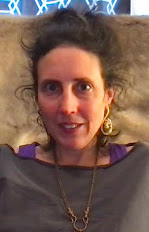Becoming “Equestrian” in the Bronze Age
Speaker: Katherine S. Kanne, PhD
February 28, 2021 • 3:30pm • Zoom!
Dr. Katherine Kanne is our next featured speaker in this season’s online lectures. She will address us on a Zoom on Sunday, February 28, beginning at 3:30pm CST, although members are invited to join informally before the talk at 3:15pm.
Dr. Kanne poses this question: ‘How have horses changed us?’ The answer may seem obvious. After all, horses have had a singular impact on human societies and in our personal lives. There is an academic and popular consensus that horses had a revolutionary impact on our history. This is generally envisioned as a technological advancement in transportation and warfare, increasing wealth and connectivity, and spurring the development of more hierarchical societies. With ramifications evident today, linkages between horses and elite authority are suggested to have originated in the Eurasian Bronze Age, c.2200-1000 BCE. However, these roots are assumed rather than demonstrated. Between the earliest domestication efforts in the 3rd millennium BCE, and the widespread appearance of mounted warfare in the 1st millennium BCE, we know very little about the ways in which horses actually changed the people and societies that adopted them, or what the nature of the human-horse relationship was at this crucial stage.In this talk, Dr. Kanne will discuss what we currently know about horse domestication and early human-horse relationships with the advent of new archaeological and ancient DNA research. She will show how archaeologists discern domestication and document early riding and chariotry, leading up to the results of her research of early horse use and riding in the Hungarian Bronze Age.
Combining the study of horse bones, human bones, and bridle bits, in her work, Dr. Kanne has identified multiple lines of evidence that coalesce to demonstrate the importance of horses in Middle Bronze Age Hungary, c.2000 BCE. She discovered the earliest evidence of riding in people, which corresponds with the appearance of fully domesticated horses and new types of bridle bits. This is supported by broad changes in equine demography, with evidence for trade of horses, a steady increase in height, along with wear from bridle bits, and bony pathologies consistent with riding and injury care.
What is most striking here is that ordinary women and men riding horses to herd and travel built these long-lived communities that were less hierarchical than previously thought. Like metallurgy, horses were not associated with any one group or social class. Nor was their use restricted by sex. This interpretation challenges traditional grand narratives for the European Bronze Age, which see elite male warriors driving chariots, desirous of bronze, instituting new forms of exclusionary governance. With a co-evolutionary partnership revolutionized during the Bronze Age, horses continue to enrich our lives, improve our health, and impact the economy and environment. Learning how this partnership was forged can help us understand why horses have retained our enduring fascination, and how they can continue to impact our future in meaningful ways.Kate Kanne is an Instructor and Research Affiliate in the Department of Anthropology at Northwestern University, where she earned a PhD. Her BA and MS in Anthropology are from Purdue University. Between degrees, she was the Project Coordinator and archaeologist for Purdue Cultural Resource Management, coordinating public sector survey and excavation in forty-two counties in Indiana, while maintaining a dual career in the horse industry.
Dr. Kanne specializes in human-animal-environment interaction and archaeological theory, with a current focus on early equestrianism in Eurasia from the 3rd to the 1st millennium BCE. Her dissertation research, from which this talk originates, is in press with Current Anthropology, with additional publications forthcoming. She has presented her research at a number of major European and American archaeology and equestrian history conferences and will serve as an assistant editor for the new journal Cheiron: The International Journal of Equine and Equestrian History. Her current project, Becoming Equestrian in Bronze Age Europe: Archaeology of the Equestrian Revolution, tracks the westward spread of domesticated horses and riding, which aims to identify the factors that led to the rise of mounted warfare broadly throughout Eurasia at the turn of the 1st millennium BCE.
Be sure to join us online for her lecture and conversation beginning at 3:15PM CT for members and 3:30PM CT for start of the lecture!
Topic: Dr. Katherine Kanne - Becoming "Equestrian" In The Bronze Age
Time: Feb 28, 2021 03:30 PM Central Time (US and Canada)
Join Zoom Meeting
https://zoom.us/j/92660570908?pwd=NkltN29MdVlYU25peVVMZVdCUjRyZz09
Meeting ID: 926 6057 0908
Passcode: 135976
One tap mobile
+13126266799,,92660570908#,,,,*135976# US (Chicago)
+13017158592,,92660570908#,,,,*135976# US (Washington D.C)
Dial by your location
+1 312 626 6799 US (Chicago)
+1 301 715 8592 US (Washington D.C)
+1 929 436 2866 US (New York)
+1 669 900 6833 US (San Jose)
+1 253 215 8782 US (Tacoma)
+1 346 248 7799 US (Houston)
Meeting ID: 926 6057 0908
Passcode: 135976
Find your local number: https://zoom.us/u/auok7A4EB



No comments:
Post a Comment